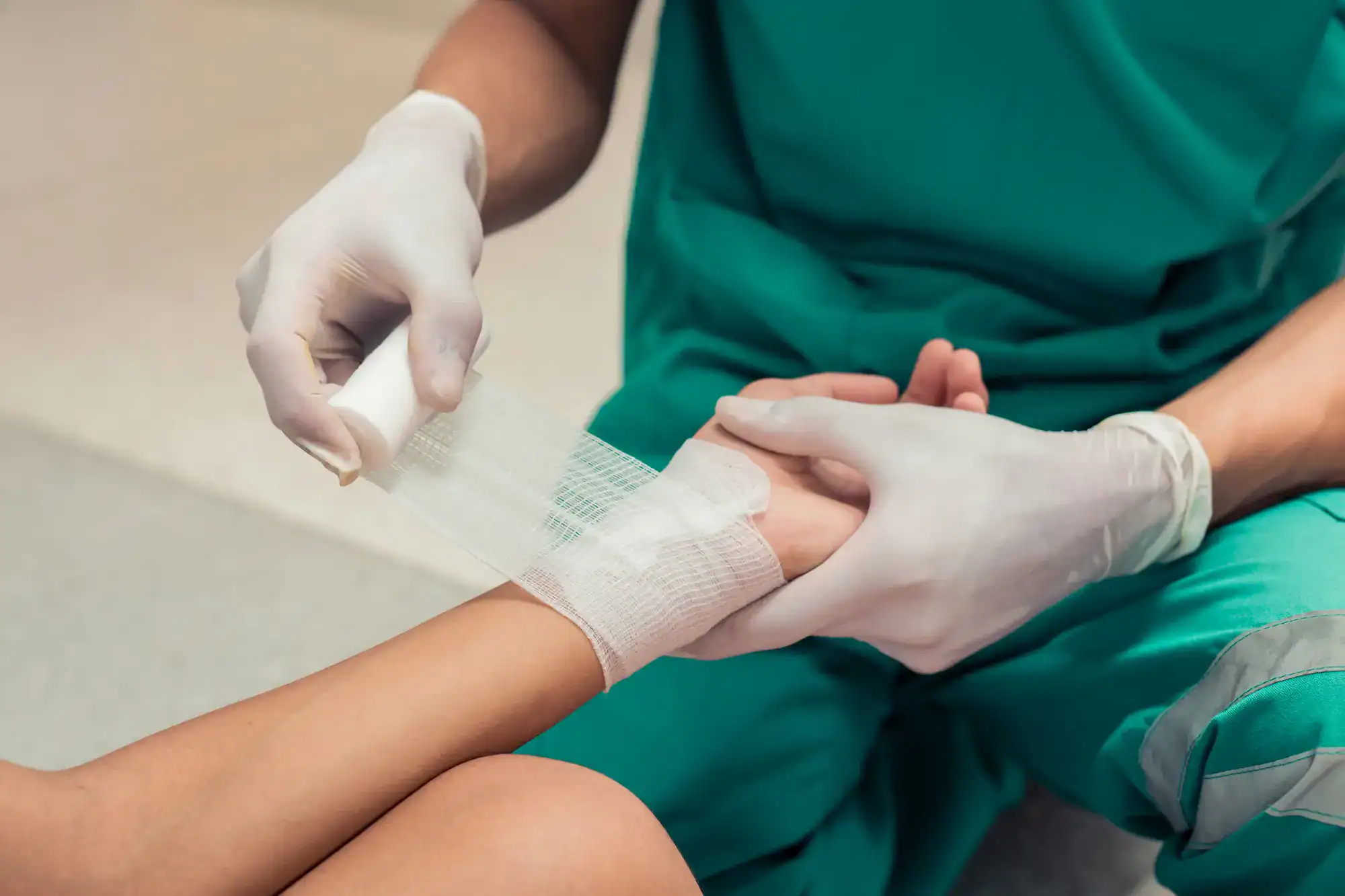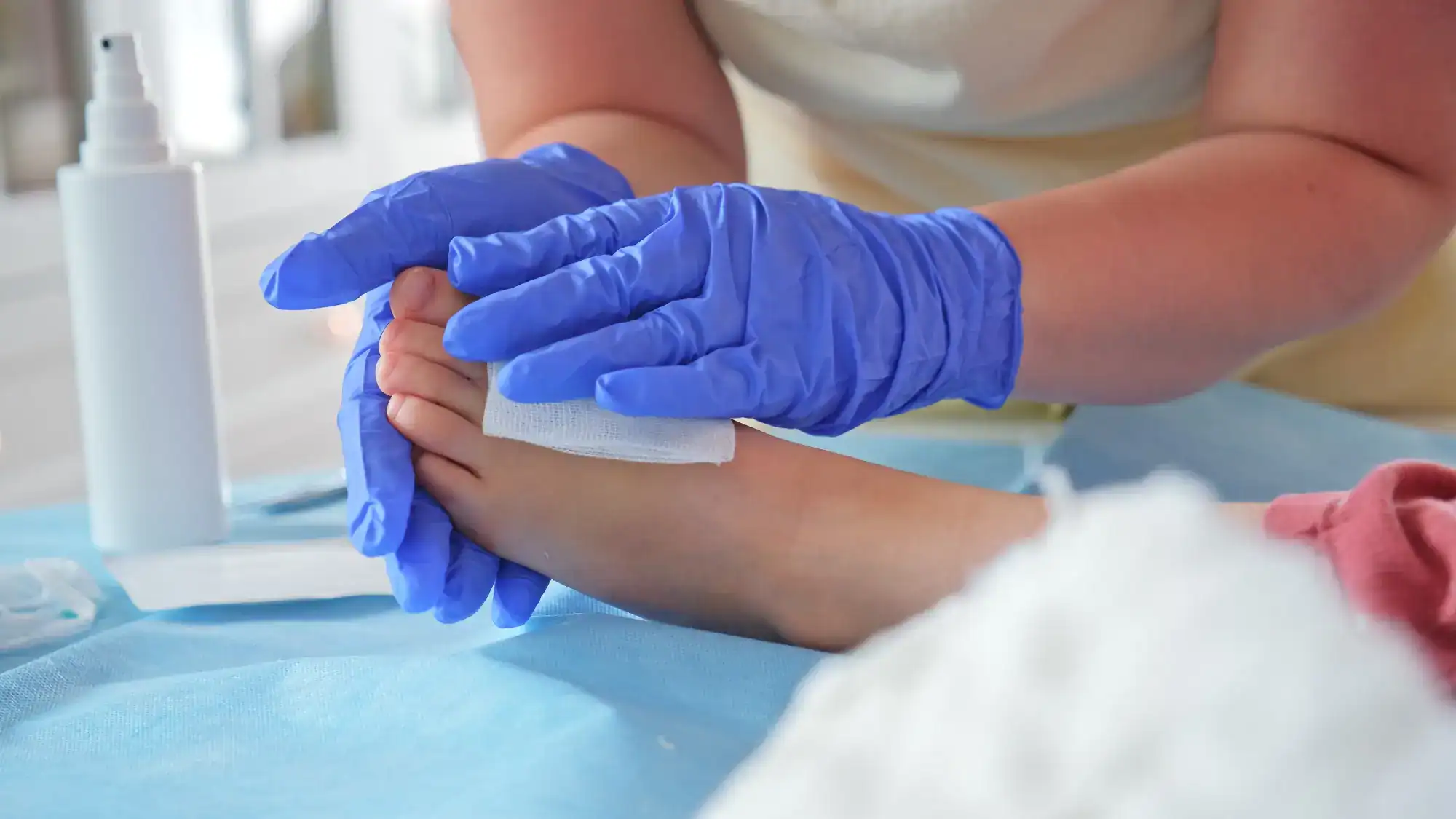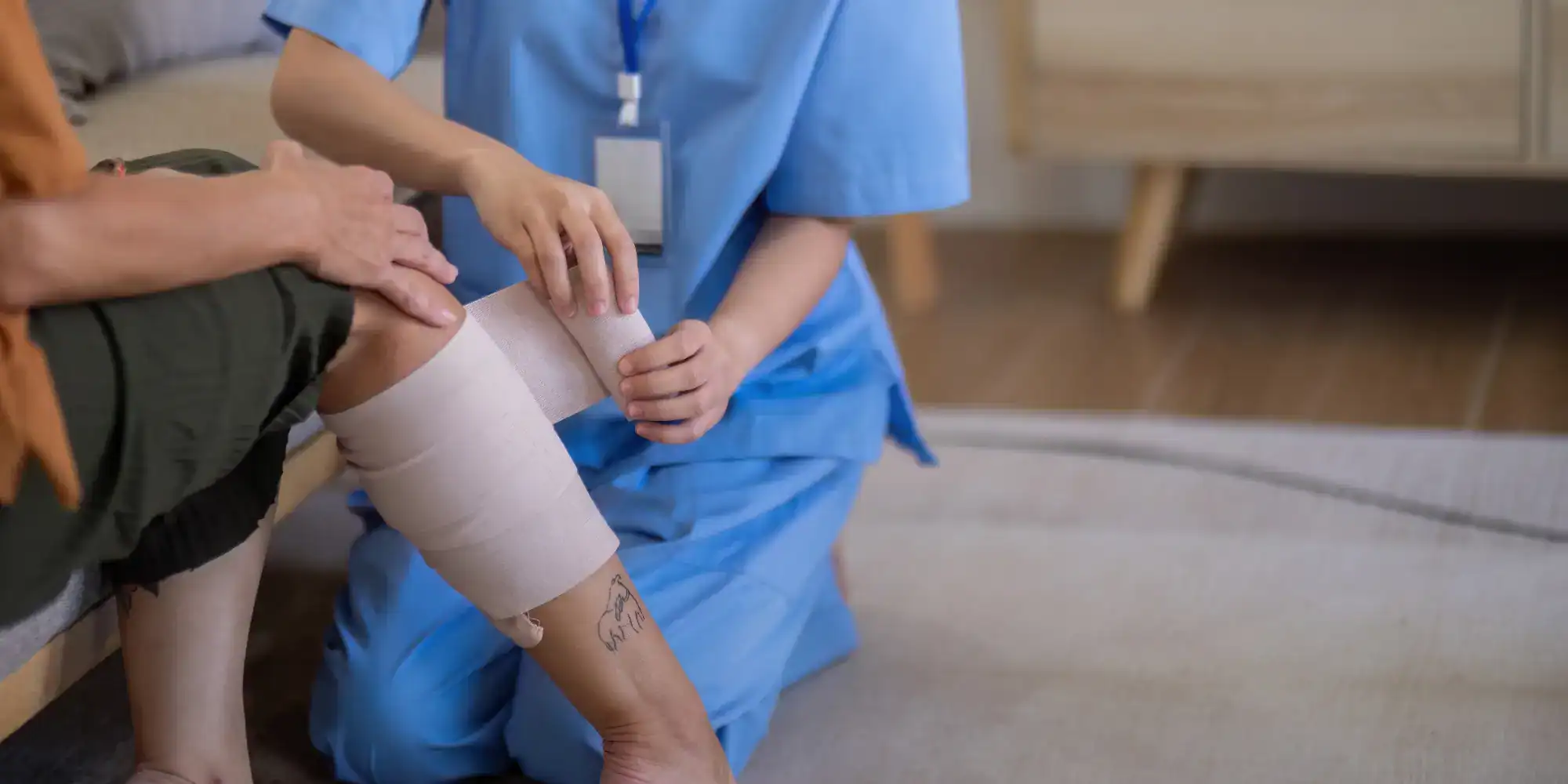Advanced wound care that stops the cycle of slow healing and gets you back to living.

See What Our Customers Think

You’re dealing with a wound that just won’t cooperate. Maybe it’s been weeks, maybe months. Traditional bandaging isn’t cutting it, and you’re starting to worry about what comes next.
Here’s what changes when you get specialized wound care. Your wound starts responding because someone finally understands what it needs to heal. The constant worry about infection drops away. You stop wondering if this is going to turn into something worse.
The difference isn’t just medical—it’s practical. You can plan your days without working around wound care appointments that aren’t working. You sleep better knowing someone with real wound expertise is monitoring your progress. Your wound becomes a problem being solved, not a problem you’re stuck with.
We focus exclusively on wounds that need more than basic care. We’ve built our practice around the patients who’ve been told to “wait and see” or “keep doing what you’re doing” when what they’re doing clearly isn’t working.
Our team understands diabetic wound care, chronic ulcers, and post-surgical wounds that refuse to heal. We’ve been serving Baum, FL patients who need specialized wound treatment, not general advice.
When your wound needs expertise, not just time, that’s where we come in.

First, we assess what’s really happening with your wound. Not just how it looks, but why it’s not healing. We examine the wound bed, check circulation, review your medical history, and identify what’s been holding back the healing process.
Then we create a treatment plan that addresses your specific wound type. Diabetic wounds get diabetic-focused care. Chronic ulcers get the advanced treatments they need. We use the right dressings, the right frequency, and the right monitoring schedule for your situation.
You’ll see us regularly while your wound heals. We track progress, adjust treatments, and catch problems before they become complications. Most importantly, we teach you what to watch for and how to support the healing process between visits.

Ready to get started?
Your wound care includes thorough wound assessment using advanced diagnostic tools to understand exactly what’s preventing healing. We provide specialized dressings and treatments specific to your wound type, whether that’s diabetic ulcers, pressure sores, or surgical wounds.
You get regular monitoring appointments to track healing progress and catch any complications early. We coordinate with your other doctors to make sure your wound care works with your overall health plan. Pain management is part of the process—wound care shouldn’t be something you dread.
We also provide education so you understand what’s happening with your wound and how to support healing at home. In Baum, FL, patients often come to us after trying everything else. We’re here for the wounds that need specialized attention, not just time.
